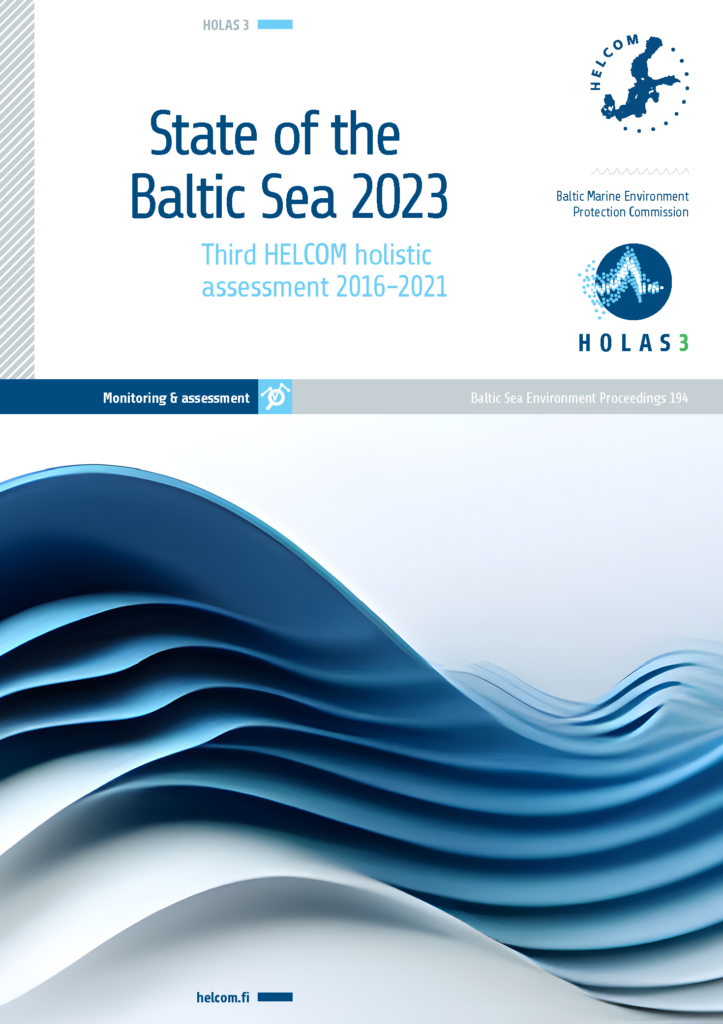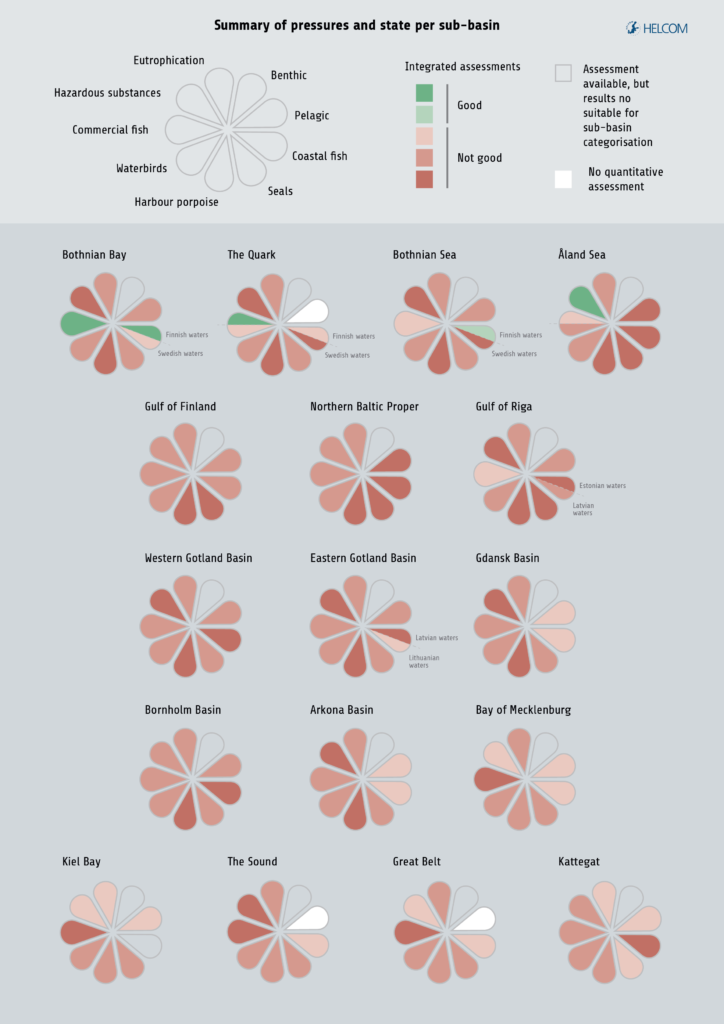EXECUTIVE SUMMARY
The Baltic Sea has unique biodiversity
The Baltic Sea has unique biodiversity, and people around the region depend on its ecosystem in ways that are not always directly apparent or appreciated. But in spite of its ecological, economic and cultural importance, biodiversity is continuously being degraded and lost. The importance of functioning ecosystems for human well-being is too often underestimated or not fully recognized in planning and decision-making. Key pressures on the Baltic Sea ecosystem include eutrophication, pollution from hazardous substances, land use and overfishing, but several other pressures also add to the total impact.
Figure ES2. Summary of the integrated assessment results of pressures and status across topics presented by the sub-basins of the Baltic Sea. For each sub-basin, each petal refers to a pressure or biodiversity ecosystem component according to its position in the flower shape, as shown in the figure legend.
Key messages
Little improvement
The Baltic Sea is under increasing impacts from climate change and biodiversity degradation catalysed by eutrophication, pollution, land use and resource extraction. Little to no improvement of the Baltic Sea environment occurred during the assessment period.
Time for action
Transformative changes are needed in all socioeconomic sectors interacting with or affecting the Baltic Sea environment. Actions are needed both to stop current negative trends and to protect and restore ecosystems.
Measures work
Measures to reduce pressures on the Baltic Sea are working, when they are implemented, and the agreements in the updated Baltic Sea Action Plan remain highly relevant.
Policy advances
Ecosystem knowledge and policies for the Baltic Sea environment have developed substantially within the past six years.
Climate change impacts
The effects of climate change are expected to increase in the future, increasing the need for measures to enhance ecosystem resilience and mitigate their negative impacts.
HELCOM's focus
Implementing the updated Baltic Sea Action Plan, facilitating eco- system-based management and minimizing impacts from climate change are focal areas for HELCOM in the coming years.

State of the Baltic Sea 2023 — The third HELCOM holistic assessment (HOLAS 3)
State of the Baltic Sea 2023 is a synthesis report that builds on, and integrates, results from a wide range of assessment products produced within the third HELCOM holistic assessment. Its role is to link information from the underpinning assessment products together, thus highlighting the holistic aspects. With this in mind, the summary report focuses on presenting the results and on an in-depth look at why we are seeing these results, providing over-arching context and analysis. The report helps develop a clearer picture of where we are and how things are connected, supporting coordinated and effective measures to strengthen the Baltic Sea environment.


